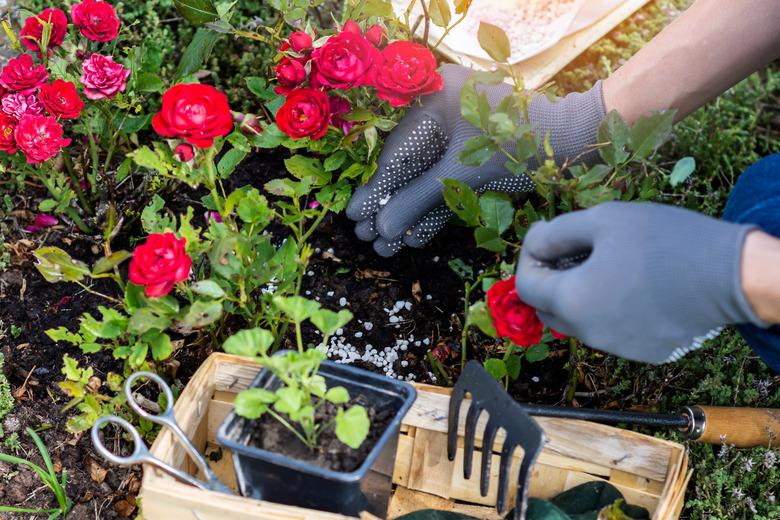Can Epsom Salts Add Calcium To Plants?
This may sound like a bait and switch, but you should know right up front that Epsom salts contain no calcium at all. That means that they cannot add calcium to your calcium-deficient plants. However, the product can be used as a fertilizer to add both magnesium and sulfur to garden soil.
What Are Epsom Salts?
Epsom salts were "discovered" in the 1600s in the town of Epsom, England. That much is certain. The story is that a farmer noticed his cows were not drinking the water from a certain mineral well. He sampled the water and found it bitter, but also found that it helped heal scratches on his skin.
Thus Epsom salts came to the public notice. They are formed from a rock called dolomite that belongs to a large group of substances known as "salts." While the original powder contained calcium sulfate, and may have added calcium to a plant bed, this is no longer the case. Modern-day Epsom salts contain no calcium at all but are magnesium sulfate, which is a blend of magnesium and sulfate, also called MgSO₄.
Can Magnesium Help Plants?
Since Epsom salts contain 10 percent magnesium and 13 percent sulfur, essential nutrients for many plants, the product has been used as a plant fertilizer for centuries. Does it work? Though you can find gardeners on both sides of this question, experts suggest that Epsom salts can be beneficial.
Magnesium helps a plant perform some of its essential functions, including increasing its ability to absorb nitrogen and phosphorus. That means that adding Epsom salts to the soil not only raises the plant's level of magnesium, but it also ensures that the plant can get even more important nutrients it needs from the soil.
In addition, magnesium assists in a plant's creation of chlorophyll, which can result in greener, lusher foliage. Chlorophyll is what determines a plant's foliage color, but it also helps plants photosynthesize. In addition, it's critical for seed germination.
Which Plants Need Magnesium?
Naysayers of Epsom salts argue that not every plant requires magnesium to thrive, and this is quite correct. The type of plant determines whether magnesium is needed or not.
Some plants perform perfectly well with minimal magnesium levels. These include many leafy vegetable crops and some types of peas and beans. Therefore, using Epsom salts will not make any difference to these crops, nor is it likely to help with lawns unless the soil is deficient in magnesium. However, many plants, including roses, peppers, and tomato plants, need high levels of magnesium to grow well. These plants are among those that benefit from Epsom salt fertilizer.
Studies organized by the National Gardening Association tested whether roses grown with Epsom salts produced more and bigger blooms than those grown with commercial fertilizer. Generally, the results suggested that this was the case. It is thought that foliar Epsom salt sprays may be even more effective at giving plants a quick supply of magnesium. This is recommended by some Master Gardeners and a practice used by commercial growers around the world.
